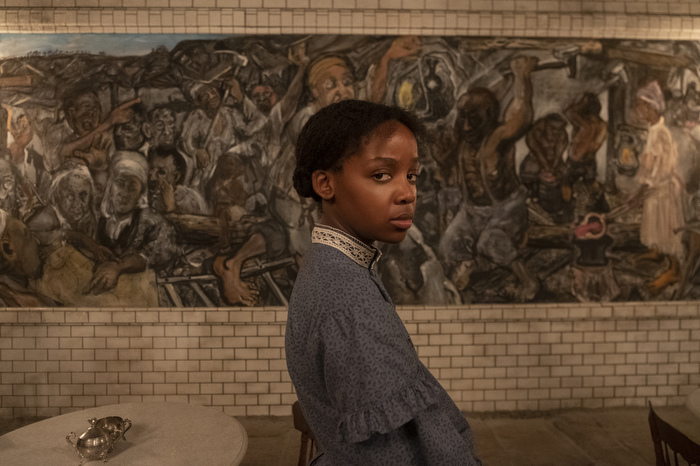“The Underground Railroad,” the new Prime Video show based on Colson Whitehead’s Pulitzer-winning novel of the same name, makes for an interesting companion piece to “The Long Song,” another miniseries centering on a formerly enslaved young woman released this year. Both projects are unflinching in their depictions of slavery and white supremacy — they respect the truth too much to gloss over it — yet are just as concerned with crafting complex, fully-formed characters. The viewer gets a sense of “The Underground Railroad’s” Cora and “The Long Song’s” July’s pain and suffering, of course, but they also come to know these women’s desires, dreams, quirks, and sense of humor. Slavery is a part of Cora and July’s stories, but it doesn’t solely define them.
Another gorgeous production from Barry Jenkins (“Moonlight,” “If Beale Street Could Talk”), “The Underground Railroad” traces Cora’s (Thuso Mbedu) journey from enslavement on a Georgia plantation toward freedom in the north via the titular organization, which in this alternate history is a literal subterranean system of tracks, tunnels, and conductors. She is initially convinced to run by Caesar (Aaron Pierre), another enslaved person on her plantation who believes Cora is good luck because her mother managed to escape. Throughout her travels, Cora meets many new people on the Railroad and otherwise, some of whom are cruel, some duplicitous, and some kind.
All the while, Cora is doggedly pursued by Ridgeway (Joel Edgerton), a bounty hunter who has tracked down every enslaved person he’s ever been hired to find, except Cora’s mother, Mabel (Sheila Atim). Ridgeway is assisted by the inscrutable Homer (Chase Dillon), a free Black boy.
“The Underground Railroad” covers a lot of ground, geographically and thematically. The series, like its source material, explores the overarching legacy of white supremacy and anti-Black racism in America — not only slavery, but eugenics, unethical and immoral scientific experiments, lynchings, sexual violence, and the whitewashing of history as well. It’s an epic tale, and, as the quiet yet willful Cora, Mbedu acts as its anchor. This actress has the most expressive eyes in recent memory: they communicate all the burdens Cora carries, the nightmares she has endured, her sadness and anger toward the mother who left her behind, and the hopes for the future she barely lets herself acknowledge.
One of the most pivotal lines from Whitehead’s book is delivered by someone Cora meets early on in her journey: “If you want to see what this nation is all about, you have to ride the rails.” It’s a sentiment that stays with Cora, and something I kept thinking about as I watched “The Underground Railroad.” If you want to see the truth of what America is — its past, present, and current trajectory — you should watch this show. Cora’s story is often very bleak, but it’s threaded through with resistance, resilience, courage, and hope, too.
“The Underground Railroad” is now streaming on Amazon Prime Video.







